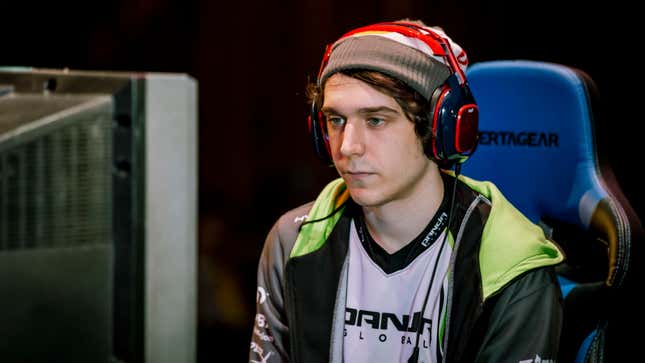
The fighting game community’s shift to online competition in the wake of the covid-19 pandemic has increased the scene’s vulnerability to problems that rarely proved serious in the past. Super Smash Bros. Melee tournament organizers learned this firsthand when a top player using a fake name threw their plans into disarray.
Rona Rumble, an online Super Smash Bros. Melee tournament series established for players looking to compete while under coronavirus quarantine, held its first east coast event last Saturday. In addition to requiring a wired broadband connection, the hosts restricted entry to a handful of states to maintain some level of consistency in match stability. Up for grabs was a relatively small $200 prize pool as well as $50 bounties for anyone who took down a top player.
Justin “Plup” McGrath has long been considered one of the best Super Smash Bros. Melee players in the world, and currently holds the #8 spot in the most recent rankings. He and a few of his friends thought it would be entertaining to enter last weekend’s Rona Rumble as FortniteFred42 via another friend’s account.
This tactic, known as “smurfing” in esports, generally isn’t an issue in the fighting game community since online play isn’t considered a vital aspect of competition—but it flew directly in the face of Rona Rumble’s rules. The smurfing group was playing from Florida, which wasn’t allowed, and stood to make some bounty money, despite McGrath’s status as a ranked player, by hiding behind an unknown name.
“We were planning on just, like, fucking alternating for random people and just like playing whatever we wanted, smurfing the fuck out of the tournament,” McGrath said during a personal Twitch stream yesterday. “It was bad ass. Every fuckin’ time I took a stock I was, like, taunting. It was so fuckin’ funny. Oh my god, I loved it.”
It’s unclear how the smurfing players were found out—McGrath, his sponsor Panda Global, and the Rona Rumble tournament organizers did not return Kotaku’s request for comment—but it was likely obvious due to the behavior mentioned above. As more and more people grew suspicious of FortniteFred42, the players involved made the decision to come forward and admit what was going on. By that point, McGrath and his friends had already beaten two players, including top 50 competitor Rishi Malhotra. According to the bracket, the FortniteFred42 account was disqualified at this point and Rishi was allowed to advance instead.
The response to McGrath’s actions was mixed. Some were disappointed that he would, maliciously or not, ruin the integrity of Rona Rumble, while others shrugged it off. McGrath has managed to build quite a fanbase within the Smash community, and as such enjoys a bit more leeway in these kinds of situations than would be afforded smaller-time or less popular competitors. In any case, he apologized for the lapse in judgment and the tournament’s payouts weren’t affected by the smurfing.
The fighting game community finds itself in an awkward position thanks to the covid-19 pandemic. Offline events are being canceled left and right, with some shifting focus to online competition. This naturally brings with it new hurdles. How will organizers guarantee a player is who they say they are? What happens if, say, Evo is overrun by top players behind burner accounts, looking to slip under the radar when it comes to proper seeding? What contingencies are in place to prevent several players teaming up to win a major tournament as a group? These are some of the questions fighting game tournaments are going to have to answer moving forward.